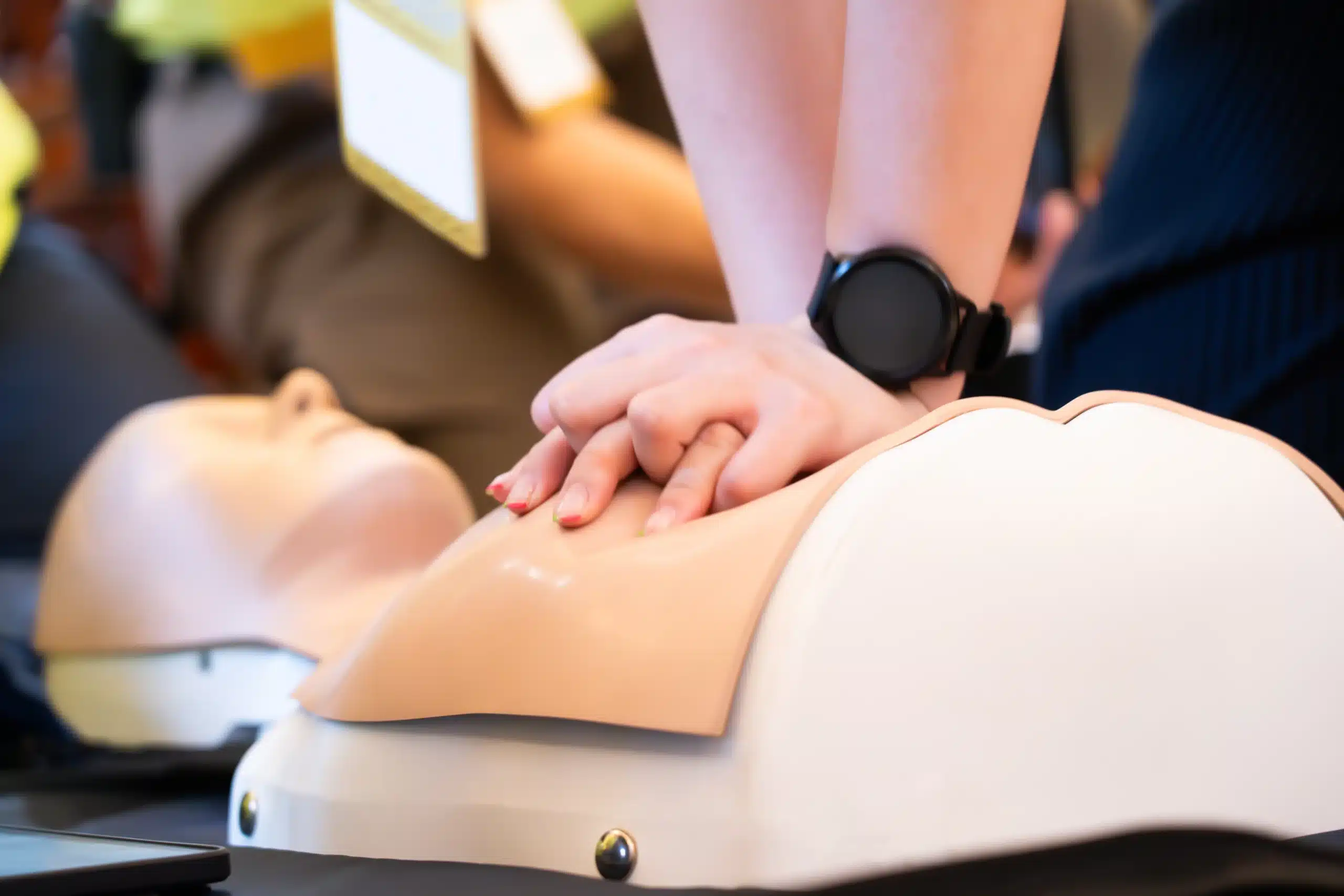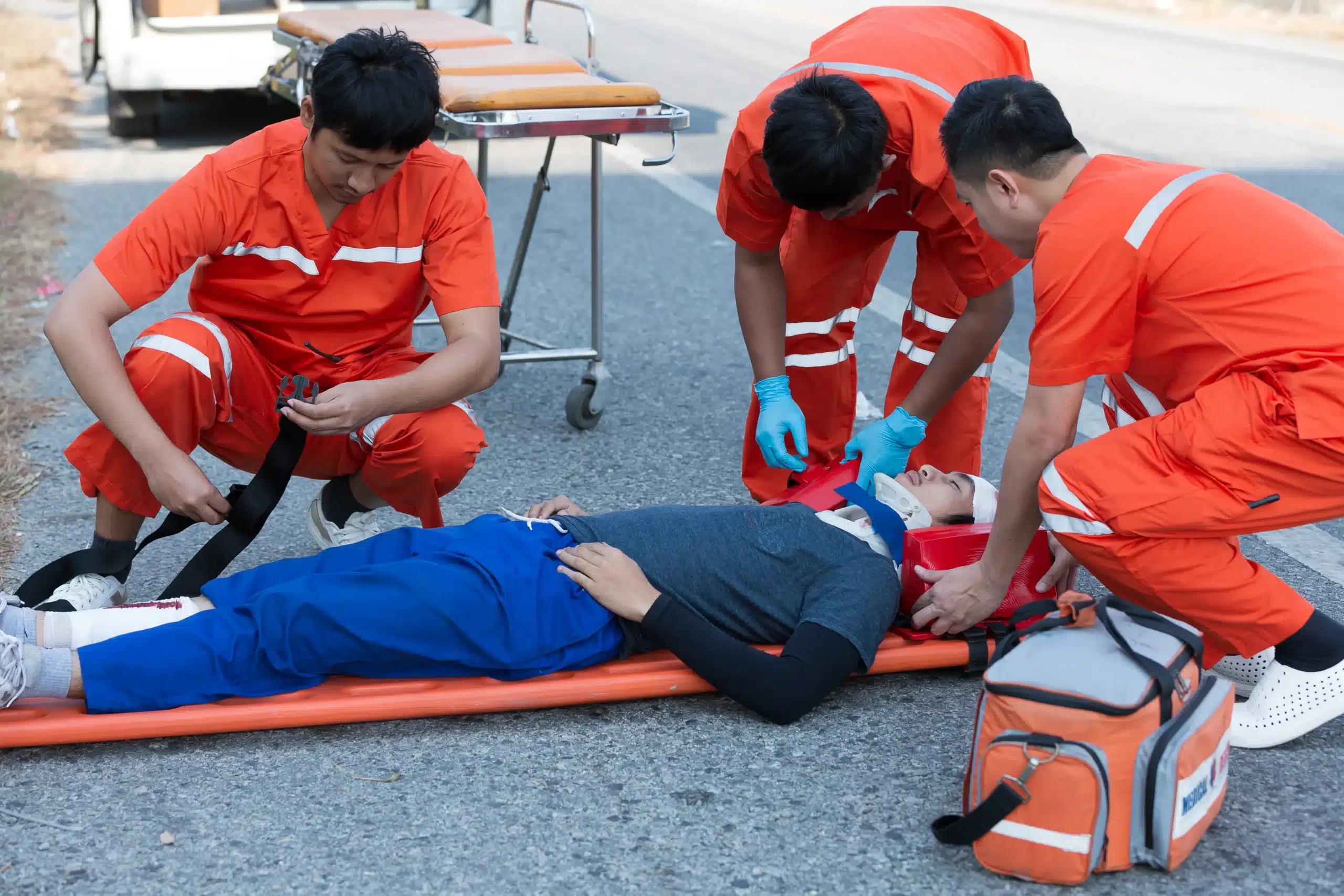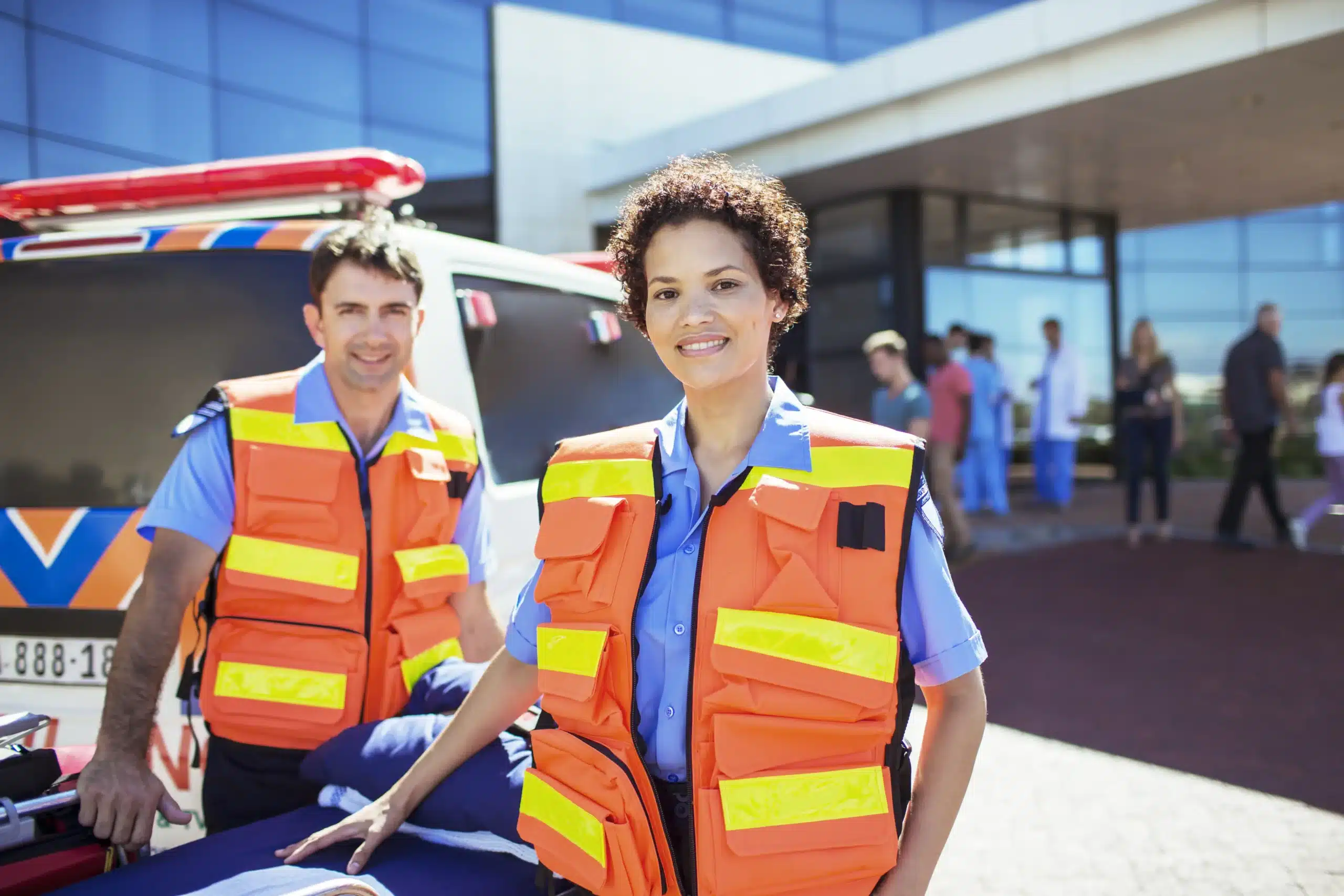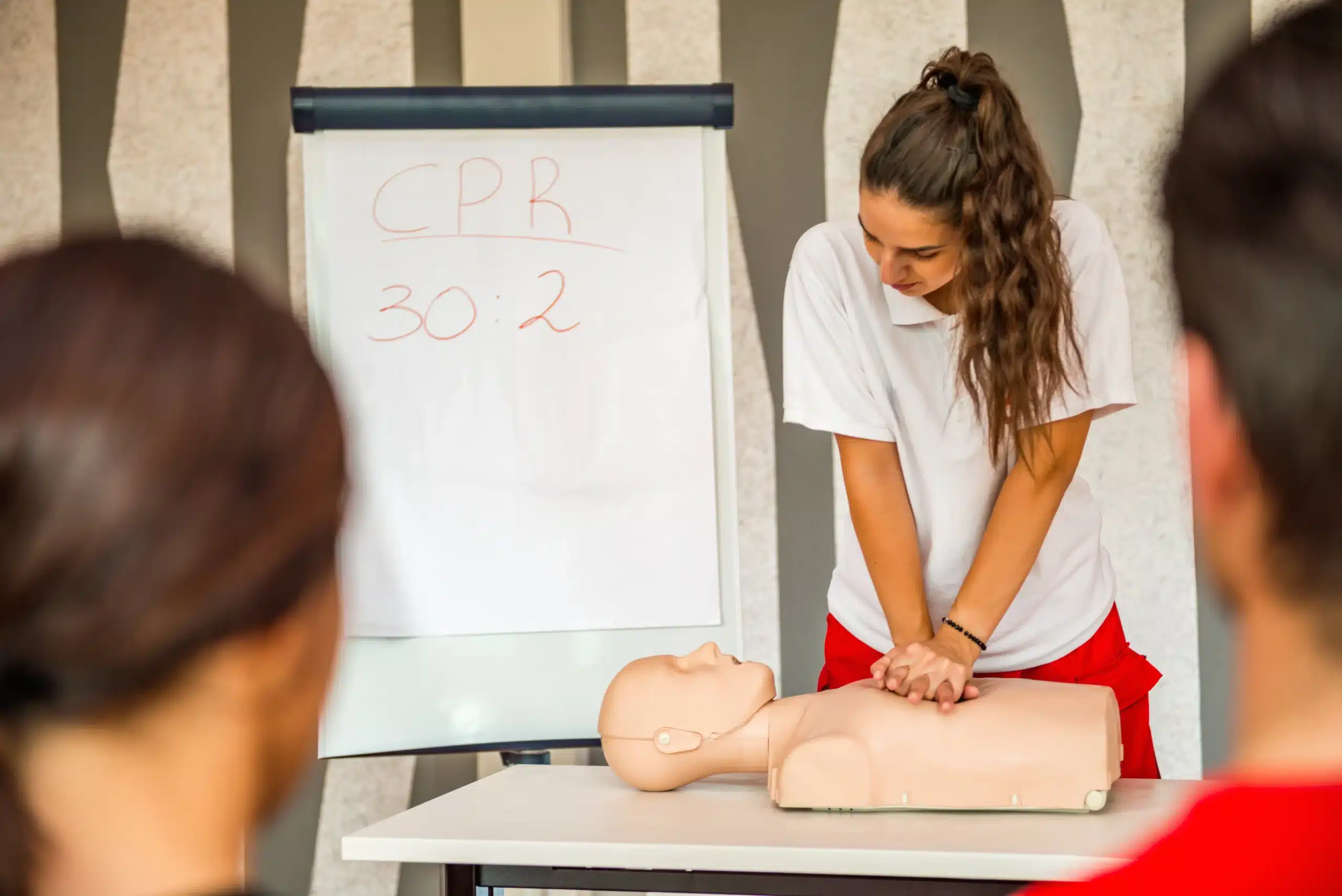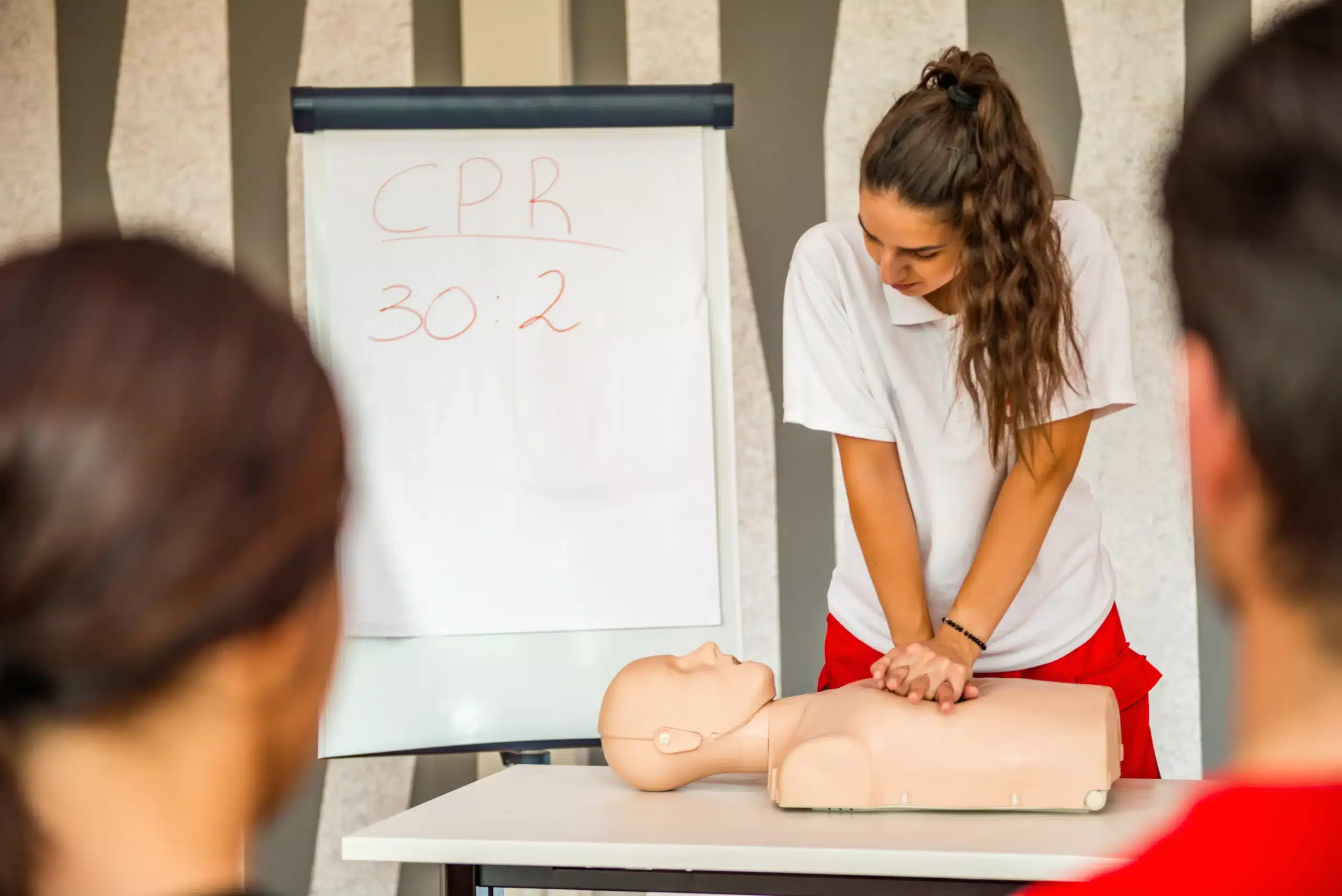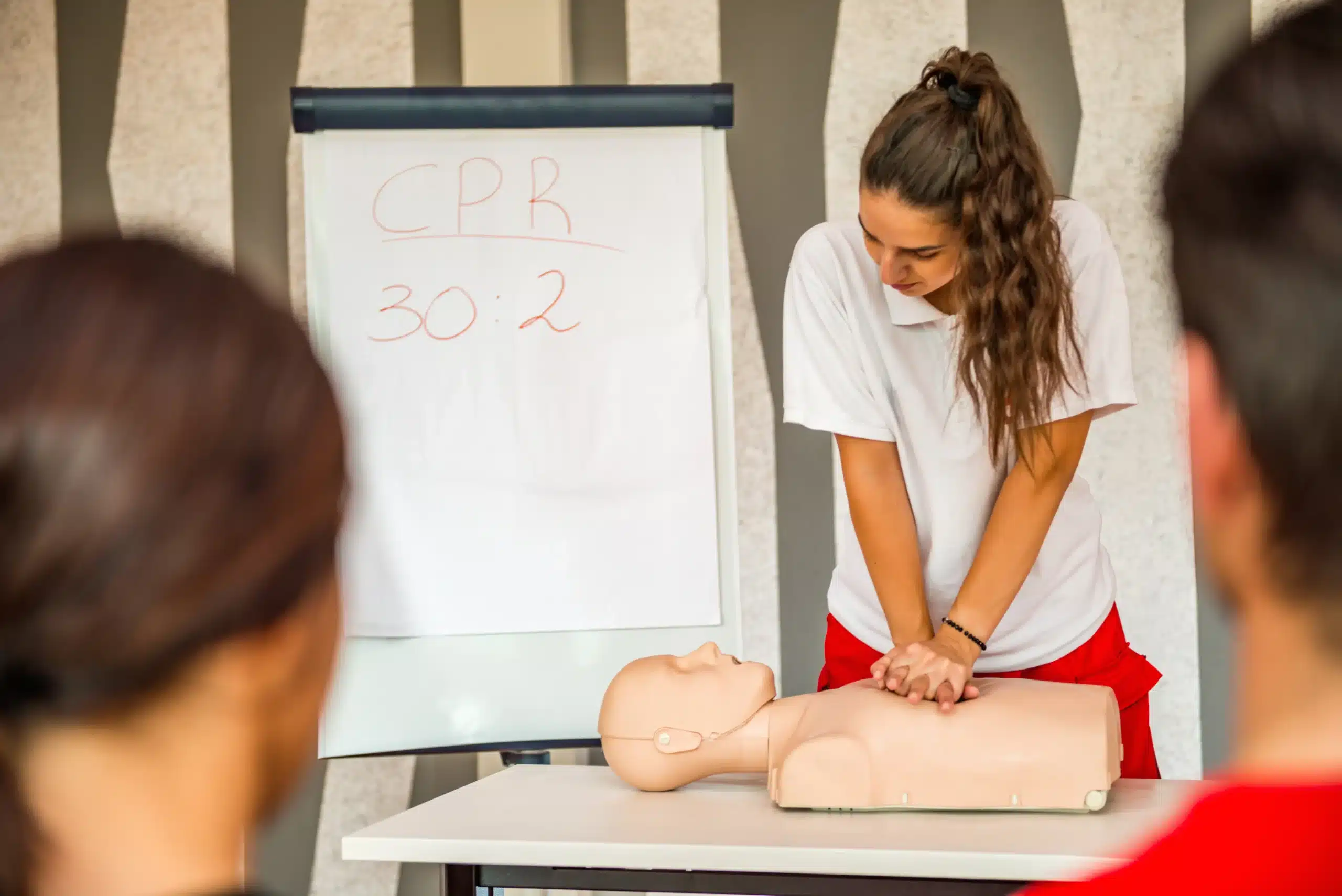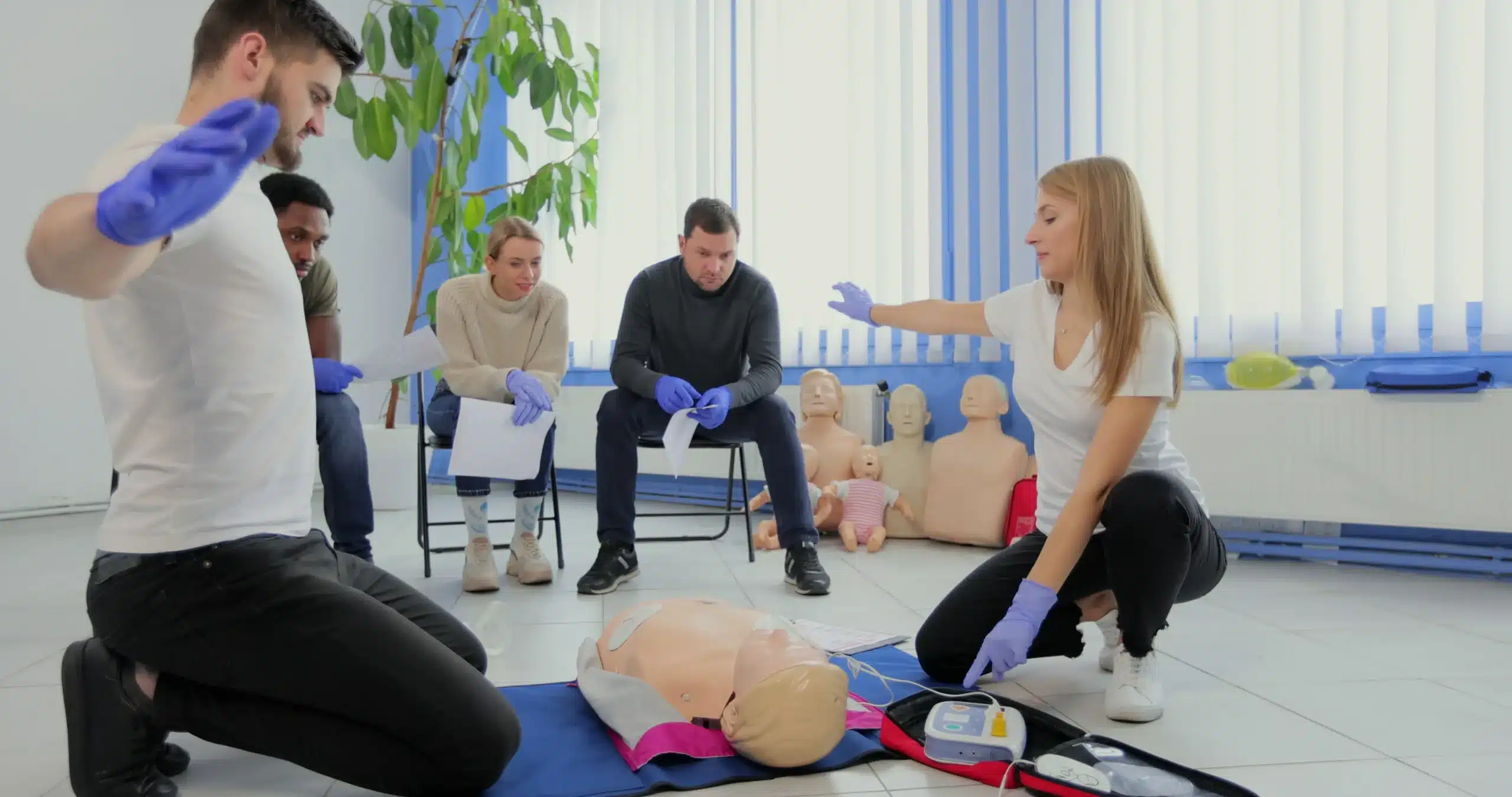In the face of a medical emergency, knowing CPR can be the difference between life and death. CPR classes in Concord provide the training you need to respond effectively in such critical situations. This guide will explore the various CPR training options available in Concord, from basic life support to advanced certifications. We’ll also address common misconceptions about CPR and highlight the importance of regular practice to maintain these essential skills. Whether you’re a healthcare professional, a community member, or simply someone who wants to be prepared, this information will help you find the right CPR class in Concord for your needs.
Key Takeaways
- CPR skills empower you in emergencies: Learning CPR equips you to confidently respond to life-threatening situations and can significantly improve survival outcomes.
- Find the right CPR class in Concord: Explore a variety of options, from basic community courses to advanced certifications for healthcare providers, with flexible schedules and formats to fit your needs.
- Maintain your skills through practice: Consistent practice and refresher courses are essential for confident and effective CPR performance when it matters most.
What is CPR and Why is it Important?
CPR (Cardiopulmonary Resuscitation) is a lifesaving technique used when someone’s heart stops beating or they stop breathing. It helps maintain blood flow and oxygen circulation to the brain and other vital organs until professional medical help arrives. Learning CPR empowers you to respond effectively in such critical situations. CPR can dramatically increase the chances of survival for someone experiencing cardiac arrest. It buys crucial time, potentially minimizing the risk of brain damage and other complications. This is why widespread CPR training is so vital for community health and safety. Knowing CPR can make you a valuable link in the chain of survival.
Common CPR Training Misconceptions
Many people hesitate to learn CPR due to several common misconceptions. Some worry about performing CPR incorrectly and causing harm. Others believe CPR alone can restart a heart, which leads to misunderstanding its true purpose—to maintain blood flow and oxygenation. Some are reluctant to perform mouth-to-mouth resuscitation, but current guidelines often prioritize chest compressions. It’s also a myth that CPR is only for medical professionals. Anyone can and should learn CPR—it’s a skill that can save lives in various settings. Don’t let these myths prevent you from gaining this essential skill.
How CPR Skills Apply to Real Life
CPR skills are directly applicable in real-life emergencies, such as heart attacks, near-drowning incidents, or choking. Regular practice and refresher courses are crucial for maintaining proficiency. Studies show that consistent practice, especially with feedback devices, significantly improves the quality of CPR performed. This translates to better outcomes for those who need it. Real-time feedback helps you refine your technique and build confidence, ensuring you’re prepared to act effectively under pressure. Investing in your CPR skills is an investment in your ability to make a real difference in a life-or-death situation.
CPR Class Types in Concord
Concord offers a variety of CPR classes to meet different needs, from basic life support for the community to advanced training for healthcare professionals. Choosing the right class ensures you gain the specific skills and knowledge necessary for your situation.
Basic Life Support (BLS)
Basic Life Support (BLS) provides a comprehensive foundation in emergency response. This BLS certification covers core skills like CPR for adults, children, and infants, along with AED use and relief of choking. BLS training is valuable for healthcare providers and anyone who wants to be prepared for emergencies. It emphasizes high-quality CPR and team dynamics for optimal patient care.
Advanced Cardiovascular Life Support (ACLS)
ACLS (Advanced Cardiovascular Life Support) is designed for healthcare professionals involved in managing cardiopulmonary emergencies. This advanced course builds upon BLS skills, covering topics like airway management, pharmacology, and effective team communication during resuscitation. ACLS certification is essential for doctors, nurses, paramedics, and other healthcare providers who direct or participate in advanced life support.
Pediatric Advanced Life Support (PALS)
PALS (Pediatric Advanced Life Support) focuses on the specialized skills needed to respond to emergencies involving infants and children. This course equips healthcare providers with the knowledge and techniques to assess, manage, and stabilize pediatric patients in critical situations. PALS certification is crucial for pediatricians, pediatric nurses, emergency medical technicians, and other professionals who care for children.
Heartsaver First Aid CPR AED
The Heartsaver First Aid CPR AED course combines essential life-saving skills. It teaches participants how to respond to various emergencies, including cardiac arrest, choking, and basic first aid scenarios. This comprehensive training covers CPR for adults, children, and infants, along with AED use and basic first aid techniques for injuries like bleeding and burns. Heartsaver certification is suitable for anyone, including teachers, coaches, childcare providers, and community members who want to learn essential life-saving skills.
Find CPR Classes in Concord
Finding the right CPR class can feel overwhelming with so many options. To help you narrow your search, we’ve compiled a list of CPR training providers in Concord, highlighting what each offers. Whether you’re a medical professional seeking recertification or someone looking for their first CPR course, you’ll find training that fits your needs.
Concord CPR Classes
Concord CPR Classes offers a variety of courses, including Basic Life Support (BLS certification), Advanced Cardiovascular Life Support (ACLS certification), and Pediatric Advanced Life Support (PALS certification). They focus on providing high-quality training at affordable prices, with discounts for group bookings. They also offer the American Heart Association’s RQI program, a convenient option for medical professionals seeking streamlined recertification. Serving Concord, Walnut Creek, and Pleasant Hill, they are a convenient local option. For a comprehensive overview of CPR training in Concord, take a look at their CPR classes guide.
Safety Training Seminars
Safety Training Seminars provides a comprehensive selection of American Heart Association (AHA) courses. You can find everything from basic CPR and first aid to advanced certifications like ACLS and PALS. As an authorized AHA training center, they issue official AHA certification cards, valid for two years, upon successful course completion. Learn more about CPR training options in their helpful guide.
American Red Cross
The American Red Cross offers a variety of CPR classes and certifications. They provide flexible learning formats, including online, in-person, and blended learning (a combination of online and in-person instruction). Their courses cover CPR techniques for adults, children, and infants, including hands-only CPR and CPR with rescue breaths.
CPR Training Center
CPR Training Center offers AHA-certified CPR, BLS, ACLS, and PALS courses. Serving the Bay Area, specifically Contra Costa County cities like Concord, Walnut Creek, and Pleasant Hill, they provide convenient training options. Visit their website for more information on their programs and how they can help you develop these essential life-saving skills.
CPR Training Schedules and Formats
Finding a CPR class that fits your schedule shouldn’t be a hurdle. Concord training centers offer various schedules and formats, so you can learn life-saving skills in a way that works for you. Whether you prefer hands-on, in-person training or the flexibility of online learning, there’s an option available to meet your needs. Let’s explore the different CPR training schedules and formats available in Concord.
In-Person Classes
Many people learn best in a traditional classroom setting, and in-person CPR classes offer just that. These classes provide hands-on training with certified instructors who can guide you through the process, answer your questions, and provide personalized feedback. Concord CPR Classes offers a range of in-person courses covering everything from basic CPR and first aid to advanced certifications. This format allows for direct interaction with instructors and other students, creating a supportive learning environment. For those who thrive in a face-to-face learning environment, in-person classes offer a valuable experience.
Online and Blended Learning
If you need more flexibility, online and blended learning CPR courses might be a good fit. Online courses allow you to learn at your own pace, often through videos, interactive exercises, and online assessments. Blended learning combines online modules with in-person skills sessions, offering a balance of flexibility and hands-on practice. This format is particularly helpful for those with busy schedules or limited access to in-person training locations. Safety Training Seminars offer a range of AHA-certified courses in this format. This blended approach can be a great way to gain foundational knowledge online and then refine practical skills in person.
Flexible Schedules & Weekends
Juggling work, family, and other commitments can make it tough to find time for training. Recognizing this, many CPR training centers in Concord offer classes on evenings and weekends. This flexibility allows you to choose a time that works best for you, without disrupting your daily routine. Check with various providers like Concord CPR Classes to find a schedule that accommodates your needs. Whether you’re a busy professional, a student, or a parent, you can find a CPR class that fits your life. This makes acquiring these essential skills more accessible than ever.
CPR Class Costs & Certification
CPR class costs vary depending on the type of certification you need and where you take the course. Concord CPR Classes offers a low price guarantee and a range of courses to fit different budgets. We understand that cost is a factor when choosing a CPR class, so we work to make this important training accessible to everyone. For larger groups, we offer discounts, making it easier for businesses and organizations in Concord, Walnut Creek, and Pleasant Hill to train their teams. Check our website for the most up-to-date pricing on CPR certification courses.
American Heart Association (AHA) Certification
Concord CPR Classes offers American Heart Association (AHA) certified courses, the gold standard in CPR training. This certification is widely recognized and respected, giving you confidence in the quality of your training. All our courses, including BLS, ACLS, and PALS, lead to official AHA certification cards, valid for two years. For healthcare providers needing a streamlined renewal process, we also offer the RQI program.
Renew Your Certification
Most CPR certifications are valid for two years, and refreshing your skills every 6–12 months is a good idea. Concord CPR Classes makes renewing your certification straightforward with our AHA eCard instructions. You can find resources and information on our website about CPR renewal. Keeping your certification current ensures you’re always prepared to respond to emergencies. Regularly practicing your skills helps you maintain confidence and proficiency in these life-saving techniques.
Your CPR Training Experience
Your CPR training should be a comfortable and valuable learning experience. Here’s what to look for in a quality CPR course:
Class Sizes & Hands-on Practice
Smaller class sizes can significantly enhance your learning. With more individualized attention from instructors, you’ll have more opportunities to ask questions and receive personalized feedback. Look for CPR classes in Concord that prioritize hands-on practice. Adequate practice time on mannequins and with AED trainers builds confidence and reinforces your skills. Concord CPR Classes offers various courses, from basic CPR and first aid to advanced certifications like ACLS and PALS. Many training centers offer a blend of in-person, online, and blended learning options to suit your schedule and learning style.
Instructor Qualifications & Teaching Methods
Experienced, certified instructors are essential for effective CPR training. Instructors should hold current certifications from reputable organizations like the American Heart Association (AHA). A good instructor will create a supportive learning environment and use clear, engaging teaching methods. They should also be able to adapt their instruction to different learning styles and answer your questions thoroughly. Concord CPR is known for its commitment to customer service and high-quality instruction. When choosing a class, consider the instructor’s qualifications and teaching style to ensure a positive and effective learning experience. The CPR Training Center in Concord offers AHA-certified Advanced Cardiovascular Life Support (ACLS) courses designed for healthcare providers.
Choose the Right CPR Class
Finding the right CPR class depends on your specific needs and goals. Whether you’re fulfilling a job requirement, seeking personal enrichment, or wanting to feel prepared for emergencies, understanding the different CPR certifications available will help you make the best choice. Consider factors like your profession, required certification level, and preferred learning style when selecting a course.
Meet Professional Requirements
Many professions require specific CPR certifications. For example, healthcare providers, including doctors, nurses, and EMTs, often need certifications like Basic Life Support (BLS) from the American Heart Association. Other professions, such as teachers, childcare providers, or lifeguards, may require a different level of certification, like Heartsaver CPR AED. Check with your employer or licensing board to determine the exact requirements for your field. Concord CPR Classes offers various learning formats, including in-person, online, and blended learning, allowing you to find a CPR class that fits your schedule and learning style.
Specialized Healthcare Provider Courses
Healthcare professionals often require more advanced training than standard CPR certification. Advanced Cardiovascular Life Support (ACLS) courses are designed for healthcare providers who lead or participate in resuscitation efforts. Pediatric Advanced Life Support (PALS) certification focuses on the specialized needs of infants and children. These courses cover advanced life-saving techniques and are crucial for professionals working in critical care settings. Safety Training Seminars offer a range of American Heart Association (AHA) courses, including CPR, BLS, ACLS, PALS, and First Aid. They provide official AHA certification cards upon completion, valid for two years. Choosing the right course ensures you have the skills and credentials needed to provide effective care in emergencies.
Prepare for Your CPR Class
Getting ready for your CPR class can make a real difference in how much you get out of the experience. Knowing what to expect and taking a few simple steps to prepare beforehand can help you feel more confident and ready to learn these life-saving skills.
What to Expect & How to Prepare
CPR training centers offer several learning formats, including in-person, online, and blended learning. This flexibility lets you pick a CPR class that works with your schedule and preferred learning style. No matter which format you choose, hands-on practice is key to mastering CPR. In a hands-on class, you’ll work with a CPR training mannequin, learning the correct hand placement and the amount of pressure needed for effective chest compressions. Wear comfortable clothing that allows for a full range of motion, since you’ll be actively participating in these practice sessions.
Pre-Course Study Materials
Concord CPR Classes offers a variety of courses to meet different needs, and many include pre-course study materials. Reviewing these materials before class can give you a head start and help you absorb the information more effectively during training. Familiarize yourself with the latest guidelines from the American Heart Association (AHA), which emphasize compression-only CPR as the preferred method. While mouth-to-mouth resuscitation is still part of the curriculum, it’s generally only necessary in specific situations. Understanding this beforehand can help clarify any questions you might have during the course.
Benefits of CPR Training
Learning CPR is an investment in yourself and your community. It equips you with the skills to potentially save a life and contribute to a safer environment for everyone.
Maintain Your Skills & Practice
CPR isn’t a learn-it-once skill. Regular practice is key to maintaining proficiency. Refreshing your CPR skills through programs like the RQI program helps maintain and even improve compression and ventilation techniques over time. Think of it like any other skill—consistent practice leads to better performance when it matters most. Real-time feedback during practice, often provided through simulation stations, is also invaluable. This immediate feedback helps you adjust your technique and build confidence, motivating you to learn and refine your skills, ensuring you’re prepared for a real emergency. Studies have shown the effectiveness of this type of feedback in improving CPR quality.
Community Safety & Emergency Preparedness
CPR-trained individuals contribute significantly to community safety. Concord CPR Classes offers a variety of courses, from basic CPR for the general public to advanced training for healthcare professionals. This range of options makes it easier for everyone to learn these essential life-saving skills. Knowing how to perform CPR empowers you to respond effectively in critical situations. While current guidelines emphasize compression-only CPR as the preferred method for many situations, understanding the nuances of CPR, such as when rescue breaths might be necessary, can further enhance your preparedness. By becoming CPR certified, you become a valuable link in the chain of survival, ready to assist until professional help arrives.
Enroll in a Concord CPR Class
Ready to learn CPR? Getting started is easier than you think. This section will guide you through signing up for a class and finding the information you need.
Sign Up for a Class
Concord offers various CPR training options to suit your needs. Whether you’re looking for basic CPR and first aid or advanced certifications like ACLS and PALS, you’ll find courses that match your experience level. Concord CPR Classes offers a range of AHA-certified courses, from basic life support to advanced cardiac care. Looking for a discount? Check out their group rates. For those seeking other options, consider exploring additional providers in the area.
Find More Information
Many training centers offer various learning formats, including in-person classes, online learning, and blended learning options. This flexibility allows you to choose a CPR class that fits your schedule and preferred learning style. For medical professionals seeking quick certification, the RQI program might be a good fit. To learn more about CPR class options in Concord, review this comprehensive guide. This resource provides valuable insights into different courses and helps you make an informed decision.
Related Articles
- Why CPR is Critical in Healthcare
- Common CPR Myths and Truths Revealed – Concord CPR Classes
- CPR Classes in Concord, CA: Your Complete Guide – Concord CPR Classes
- BLS Classes in Pleasant Hill: The Complete Guide – Concord CPR Classes
- Your Guide to CPR Classes in Walnut Creek – Concord CPR Classes
Frequently Asked Questions
What if I’m nervous about performing CPR in a real emergency? It’s completely normal to feel apprehensive about using CPR in a real-life situation. That’s why regular practice and choosing a class with a supportive instructor are so important. Hands-on training helps build muscle memory and confidence, allowing you to react more effectively under pressure. Remember, any attempt at CPR is better than none. You’ve got this!
Which CPR certification is right for me? The best CPR certification depends on your individual needs. If you’re a healthcare professional, you’ll likely need BLS, ACLS, or PALS. For most other professions or personal enrichment, a Heartsaver First Aid CPR AED certification is usually sufficient. When in doubt, check with your employer or a training center like Concord CPR Classes for guidance.
How often do I need to renew my CPR certification? Most CPR certifications are valid for two years. However, refreshing your skills every 6-12 months is a good practice. Regular practice helps maintain your proficiency and ensures you’re always ready to respond effectively. Many training centers offer refresher courses to help you stay up-to-date.
What does a CPR class typically involve? CPR classes usually involve a combination of instruction and hands-on practice. You’ll learn the proper techniques for chest compressions, rescue breaths (if applicable to your certification level), and how to use an AED. Expect to practice on mannequins and participate in simulated scenarios to reinforce your learning.
What if I don’t have time for a traditional in-person CPR class? Many CPR training centers now offer flexible learning options, including online and blended learning courses. Online courses allow you to learn the material at your own pace, while blended learning combines online modules with in-person skills sessions. This allows you to fit CPR training into your busy schedule.


